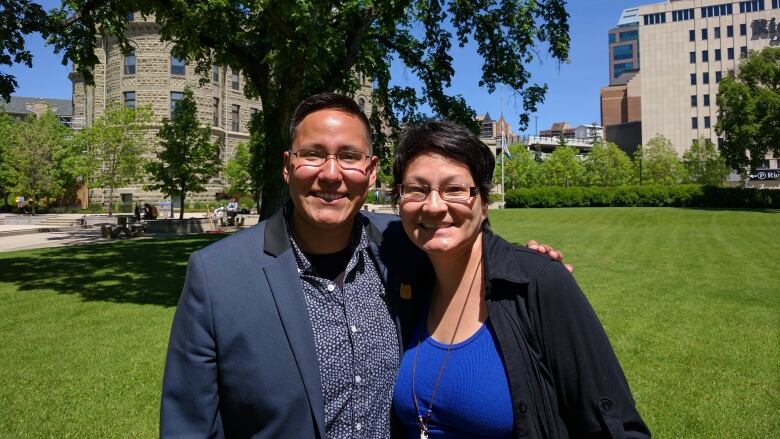How Jack Saddleback is reclaiming queer and transgender Indigenous identities


Jack Saddleback remembers growing up on his home reserve of Samson Cree Nation, Alta., as "a time of pure happiness."
"Within Cree culture — within many First Nations cultures — so long as the child is happy the community is happy."
Saddleback is Cree. He's two-spirit. And he's a transgender gay man. Speaking to Unreserved host Rosanna Deerchild, he laughed as he acknowledged the many different identities he carries with him.
"My identity has been a constant coming out, I suppose, in more ways than one."
As he entered school, his family encouraged him to act and dress feminine. They were worried he'd be bullied by his peers. But Saddleback, born female, knew early on that he identified as masculine. He even remembers the exact moment he began to recognize his gender identity.
He was playing at his grandmother's place and — as three-year-olds are wont to do — he soiled himself.
"So she took me in to her laundry room," said Saddleback. "She's trying to find me something to wear and she's digging through these mountains of clothes. She finally gets frustrated and then she finds this pair of little boy briefs."
"I put them on. I put one leg in, the other leg in, and I pulled them up. Honestly, I felt like Superman," he said.
Like many queer, trans, and two-spirit youth, Saddleback struggled as he grew up and began to be confronted with homophobia and transphobia. At 20 years old he found the courage to come out to his grandparents as transgender.
"I remember them saying, 'we've never known or had anyone like you in our family, but we want to help you in whatever way we can.'"
To help their grandchild, Saddleback's grandparents suggested he spend time with a medicine man who was visiting the community. He agreed, hoping that tradition and ceremony would help give him direction. Little did he know, that ceremony would change his life.
As they prayed together, something the medicine man said caught Saddleback's attention.
"I start to hear little things like 'lost path' and 'the natural attraction between a man and a woman'. And right in that instance, it really occurred to me that one of my cultural leaders — a medicine man — thought there was something wrong with me."
Saddleback says he left the ceremony with a profound realization: colonization had fundamentally changed the way Indigenous communities view gender and sexuality.
Two-spirit people have long played an important role in many Indigenous traditions, but residential schools and Western religion placed enormous shame on queer identities.
Saddleback said he has hope that he can help undo that damage and clear the way for other queer, trans and two-spirit youth to find love and acceptance in their communities.
"We do have transphobia and we do have homophobia within our own cultures. We have to step up and we have to talk about these issues. Because when we don't talk about two-spirit issues, we are continuing the violence against our own people."